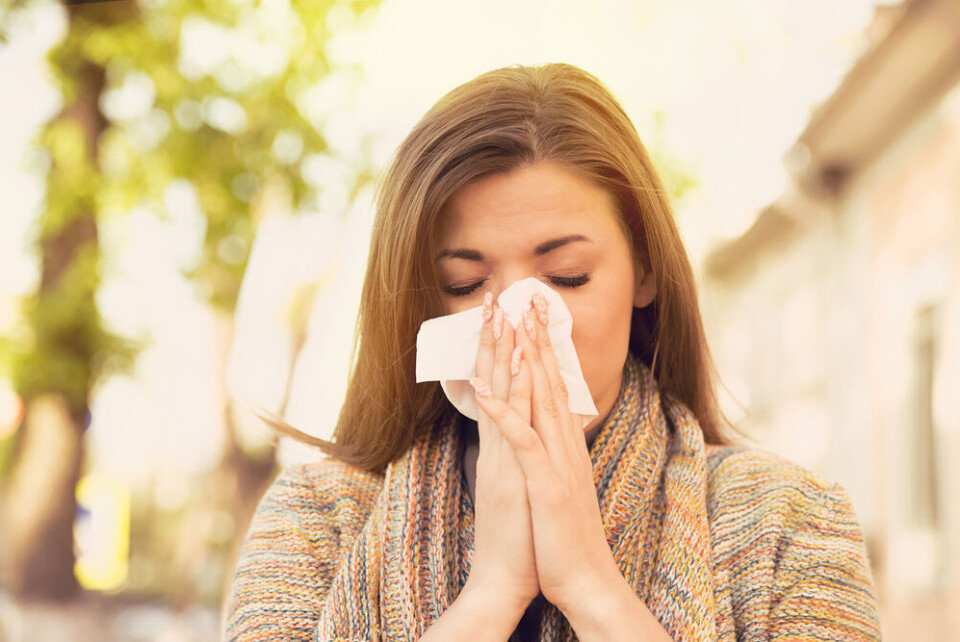-
Many Société Générale customers to be charged additional fees from April
There is some good news for international banking and instant transfers, however
-
Why gas prices in France are rising in April - and by how much
It comes after six consecutive monthly rises. Try these tips to reduce your bills
-
New notaire data suggests easing of Paris property crisis
Property experts have talked of ‘easing pressure’ and ‘breathing space’ after a four-year slump
Pollen allergies: most of France on highest alert
Pollen from cypress, ash, hazel, alder, and mimosa is causing severe risk across most of the country

Most of France is on red alert - the highest level - for pollen allergies, the national air quality monitoring network has confirmed.
The Réseau national de surveillance aérobiologique (RNSA) published a new map on February 14, showing the majority of the country on red alert, stretching from the south-east to the north-east, across the south, and reaching up to most of the north.
In total, 74 departments are on red alert, including those across Grand-Est, Bourgogne-Franche-Comté, Auvergne-Rhône-Alpes, Centre-Val de Loire, Île-de-France and most of the south.
Only the very north and north-west quadrant have escaped the worst of it, but even 21 departments are still on yellow alert, the second-highest level. Only Finistère in the far west is unaffected, and still on the lowest ‘no risk’ level of green
The RNSA is warning over two types of pollen allergy:
- Cypress and ash trees, more common in the south of France.
- Hazel and alder, in the rest of the country.
The network said on X (formerly Twitter): “Pollen concentrations are particularly high across the country today because of the very mild weather! Particularly for alder pollen (Betulaceae family) which is in full bloom. Mimosas, which are in bloom in the south, can also cause local allergies.”
The risk is likely to continue for "several weeks until the end of March", the RNSA said.
It added that as mild, sunny weather is forecast nationwide this week, the pollen risk could yet rise further, especially in the areas that are still on yellow alert.
France has been experiencing seasonally-high temperatures, close to those usually seen at the end of April. In some areas, temperatures could even rise to those more commonly seen in late spring.
How to avoid the worst of the allergies
Symptoms of pollen allergies include:
- Coughing
- Runny nose
- Red and watery eyes
- Breathing difficulties (in severe cases)
- Asthma attacks (in severe cases)
The RNSA recommends that people take antihistamine-based treatments, and take steps around the home to reduce their risk.
It recommends:
- Washing your clothes regularly
- Rinsing your hair in the evening
- Airing your home early in the morning and late in the evening when temperatures are lower and there is less pollen in the air
- Drying your clothes indoors
- Avoiding activities such as outdoor sports
- Closing your car windows
- Checking the risk situation before going outdoors
Related articles
Four apps to help France's allergy sufferers find local pollen counts
Global warming behind France's long allergy season
























